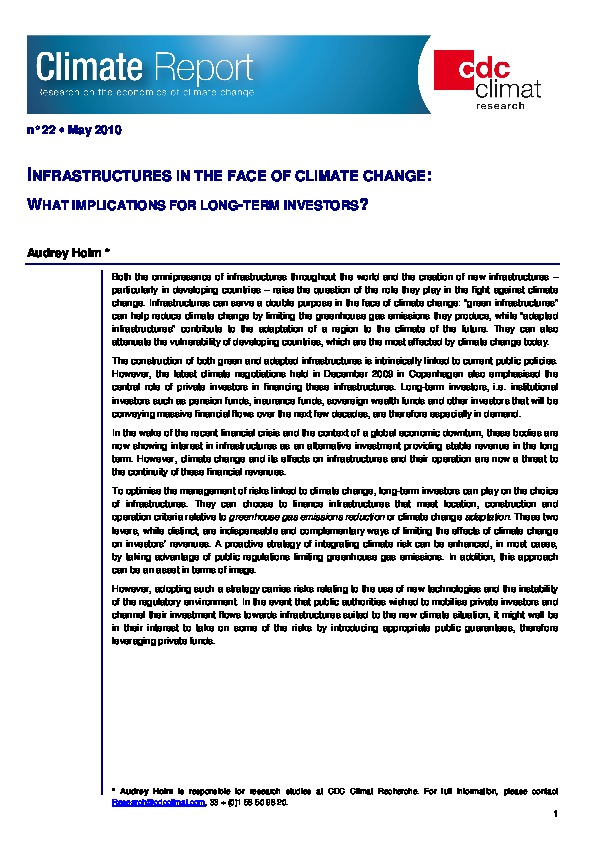Infrastructures in the face of climate change: What implications for long-term investors?
By Audrey HOLM
Both the omnipresence of infrastructures throughout the world and the creation of new infrastructures – particularly in developing countries – raise the question of the role they play in the fight against climate change. Infrastructures can serve a double purpose in the face of climate change: “green infrastructures” can help reduce climate change by limiting the greenhouse gas emissions they produce, while “adapted infrastructures” contribute to the adaptation of a region to the climate of the future. They can also attenuate the vulnerability of developing countries, which are the most affected by climate change today. The construction of both green and adapted infrastructures is intrinsically linked to current public policies. However, the latest climate negotiations held in December 2009 in Copenhagen also emphasised the central role of private investors in financing these infrastructures. Long-term investors, i.e. institutional investors such as pension funds, insurance funds, sovereign wealth funds and other investors that will be conveying massive financial flows over the next few decades, are therefore especially in demand.
